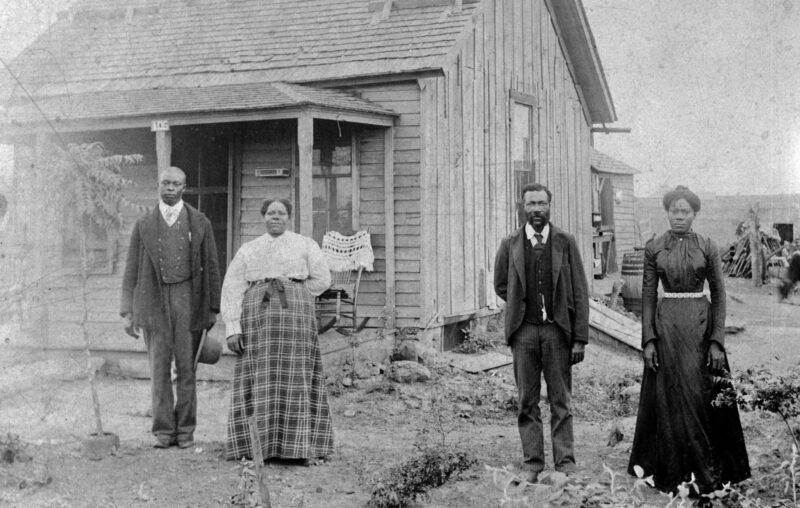The Surprising Beneficiaries of American Slavery

Slavery has never been legal in California. But that didn’t stop the California Reparations Task Force. In its final report, issued on June 29, it suggested that the state government pay $1.3 million to Californians who can demonstrate that they are the descendant of a slave or a freed black person living in the U.S. prior to 1900. This payment is to compensate those whose ancestors suffered from chattel slavery and its downstream effects, such as racism and lower life expectancies.
Here’s the problem. The reparations being proposed will take money from people, the vast majority of whom gained nothing from slavery, and give it to people who benefited immensely from slavery.
Who suffered from slavery? The slaves themselves. They were brought from Africa against their will, and they were forced to work without receiving the full value of their labor.
Who gained nothing from slavery? Except for the rare person who inherited an estate that slavery enriched, every contemporary non-black American gained nothing from slavery.
Who gained from slavery? Americans of African descent.
The late economist Walter E. Williams said that slavery was the worst thing ever to happen to his ancestors, but the best thing ever to happen to him. Why? Because instead of growing up in Guinea-Bissau, Angola, Senegal, Mali, or the Democratic Republic of Congo, he enjoyed the opportunities, wealth, health, security, and freedom of the United States.
The descendants of slaves, such as Williams, received the bounty of being born in America, where the average per capita annual income for blacks is $24,509. While the enslaved people came from a variety of African countries, the five mentioned above have an average annual income of $1,650. Over a hypothetical 40-year career, the difference is hundreds of thousands of dollars.
You might think the descendants of slaves suffered a financial loss because contemporary blacks have an annual income that is $17,600 below that of whites. But that’s an unrealistic comparison. If it weren’t for the forced relocations of the slave trade, those who would be getting reparations today would be Bissau-Guinean, Angolan, Senegalese, Malian, or Congolese, not American.
The task force determined that most of the amount it claims are owed to black Californians, $966,918, is due to a lower life expectancy. But the task force mistakenly compared black Californians to white non-Hispanic Californians. The proper comparison is with black Africans, where life expectancies are about ten years lower. Using the task force’s assumptions, the figure would be $1.23 million, but in favor of black Californians.
All told, the value to the descendants of slaves of being born in America is well over one million dollars. It’s as if every black American won the lottery. The task force wants Californian taxpayers to pay them even more.
Slavery was odious. Today’s black Americans are not slaves, but are the indisputable, albeit unintended, beneficiaries of the slave trade and are due no financial settlement.












